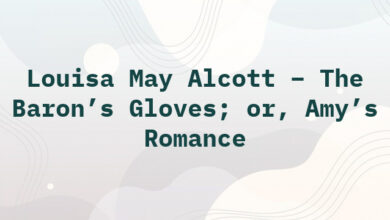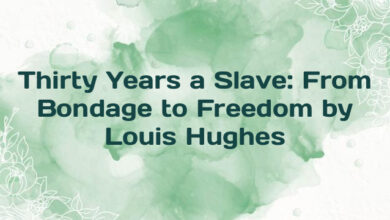
Typhoon by Joseph Conrad
Chapter VI
On A bright sunshiny day, with the breeze chasing her smoke far ahead, the Nan-Shan came into Fu-chau. Her arrival was at once noticed on shore, and the seamen in harbour said: “Look! Look at that steamer. What’s that? Siamese—isn’t she? Just look at her!”
She seemed, indeed, to have been used as a running target for the secondary batteries of a cruiser. A hail of minor shells could not have given her upper works a more broken, torn, and devastated aspect: and she had about her the worn, weary air of ships coming from the far ends of the world—and indeed with truth, for in her short passage she had been very far; sighting, verily, even the coast of the Great Beyond, whence no ship ever returns to give up her crew to the dust of the earth. She was incrusted and gray with salt to the trucks of her masts and to the top of her funnel; as though (as some facetious seaman said) “the crowd on board had fished her out somewhere from the bottom of the sea and brought her in here for salvage.” And further, excited by the felicity of his own wit, he offered to give five pounds for her—”as she stands.”
Before she had been quite an hour at rest, a meagre little man, with a red-tipped nose and a face cast in an angry mould, landed from a sampan on the quay of the Foreign Concession, and incontinently turned to shake his fist at her.
A tall individual, with legs much too thin for a rotund stomach, and with watery eyes, strolled up and remarked, “Just left her—eh? Quick work.”
He wore a soiled suit of blue flannel with a pair of dirty cricketing shoes; a dingy gray moustache drooped from his lip, and daylight could be seen in two places between the rim and the crown of his hat.
“Hallo! what are you doing here?” asked the ex-second-mate of the Nan-Shan, shaking hands hurriedly.
“Standing by for a job—chance worth taking—got a quiet hint,” explained the man with the broken hat, in jerky, apathetic wheezes.
The second shook his fist again at the Nan-Shan. “There’s a fellow there that ain’t fit to have the command of a scow,” he declared, quivering with passion, while the other looked about listlessly.
“Is there?”
But he caught sight on the quay of a heavy seaman’s chest, painted brown under a fringed sailcloth cover, and lashed with new manila line. He eyed it with awakened interest.
“I would talk and raise trouble if it wasn’t for that damned Siamese flag. Nobody to go to—or I would make it hot for him. The fraud! Told his chief engineer—that’s another fraud for you—I had lost my nerve. The greatest lot of ignorant fools that ever sailed the seas. No! You can’t think . . .”
“Got your money all right?” inquired his seedy acquaintance suddenly.
“Yes. Paid me off on board,” raged the second mate. “‘Get your breakfast on shore,’ says he.”
“Mean skunk!” commented the tall man, vaguely, and passed his tongue on his lips. “What about having a drink of some sort?”
“He struck me,” hissed the second mate.
“No! Struck! You don’t say?” The man in blue began to bustle about sympathetically. “Can’t possibly talk here. I want to know all about it. Struck—eh? Let’s get a fellow to carry your chest. I know a quiet place where they have some bottled beer. . . .”
Mr. Jukes, who had been scanning the shore through a pair of glasses, informed the chief engineer afterwards that “our late second mate hasn’t been long in finding a friend. A chap looking uncommonly like a bummer. I saw them walk away together from the quay.”
The hammering and banging of the needful repairs did not disturb Captain MacWhirr. The steward found in the letter he wrote, in a tidy chart-room, passages of such absorbing interest that twice he was nearly caught in the act. But Mrs. MacWhirr, in the drawing-room of the forty-pound house, stifled a yawn—perhaps out of self-respect—for she was alone.
She reclined in a plush-bottomed and gilt hammock-chair near a tiled fireplace, with Japanese fans on the mantel and a glow of coals in the grate. Lifting her hands, she glanced wearily here and there into the many pages. It was not her fault they were so prosy, so completely uninteresting—from “My darling wife” at the beginning, to “Your loving husband” at the end. She couldn’t be really expected to understand all these ship affairs. She was glad, of course, to hear from him, but she had never asked herself why, precisely.
“. . . They are called typhoons . . . The mate did not seem to like it . . . Not in books . . . Couldn’t think of letting it go on. . . .”
The paper rustled sharply. “. . . . A calm that lasted more than twenty minutes,” she read perfunctorily; and the next words her thoughtless eyes caught, on the top of another page, were: “see you and the children again. . . .” She had a movement of impatience. He was always thinking of coming home. He had never had such a good salary before. What was the matter now?
It did not occur to her to turn back overleaf to look. She would have found it recorded there that between 4 and 6 A. M. on December 25th, Captain MacWhirr did actually think that his ship could not possibly live another hour in such a sea, and that he would never see his wife and children again. Nobody was to know this (his letters got mislaid so quickly)—nobody whatever but the steward, who had been greatly impressed by that disclosure. So much so, that he tried to give the cook some idea of the “narrow squeak we all had” by saying solemnly, “The old man himself had a dam’ poor opinion of our chance.”
“How do you know?” asked, contemptuously, the cook, an old soldier. “He hasn’t told you, maybe?”
“Well, he did give me a hint to that effect,” the steward brazened it out.
“Get along with you! He will be coming to tell me next,” jeered the old cook, over his shoulder.
Mrs. MacWhirr glanced farther, on the alert. “. . . Do what’s fair. . . Miserable objects . . . . Only three, with a broken leg each, and one . . . Thought had better keep the matter quiet . . . hope to have done the fair thing. . . .”
She let fall her hands. No: there was nothing more about coming home. Must have been merely expressing a pious wish. Mrs. MacWhirr’s mind was set at ease, and a black marble clock, priced by the local jeweller at 3L. 18s. 6d., had a discreet stealthy tick.
The door flew open, and a girl in the long-legged, short-frocked period of existence, flung into the room.
A lot of colourless, rather lanky hair was scattered over her shoulders. Seeing her mother, she stood still, and directed her pale prying eyes upon the letter.
“From father,” murmured Mrs. MacWhirr. “What have you done with your ribbon?”
The girl put her hands up to her head and pouted.
“He’s well,” continued Mrs. MacWhirr languidly. “At least I think so. He never says.” She had a little laugh. The girl’s face expressed a wandering indifference, and Mrs. MacWhirr surveyed her with fond pride.
“Go and get your hat,” she said after a while. “I am going out to do some shopping. There is a sale at Linom’s.”
“Oh, how jolly!” uttered the child, impressively, in unexpectedly grave vibrating tones, and bounded out of the room.
It was a fine afternoon, with a gray sky and dry sidewalks. Outside the draper’s Mrs. MacWhirr smiled upon a woman in a black mantle of generous proportions armoured in jet and crowned with flowers blooming falsely above a bilious matronly countenance. They broke into a swift little babble of greetings and exclamations both together, very hurried, as if the street were ready to yawn open and swallow all that pleasure before it could be expressed.
Behind them the high glass doors were kept on the swing. People couldn’t pass, men stood aside waiting patiently, and Lydia was absorbed in poking the end of her parasol between the stone flags. Mrs. MacWhirr talked rapidly.
“Thank you very much. He’s not coming home yet. Of course it’s very sad to have him away, but it’s such a comfort to know he keeps so well.” Mrs. MacWhirr drew breath. “The climate there agrees with him,” she added, beamingly, as if poor MacWhirr had been away touring in China for the sake of his health.
Neither was the chief engineer coming home yet. Mr. Rout knew too well the value of a good billet.
“Solomon says wonders will never cease,” cried Mrs. Rout joyously at the old lady in her armchair by the fire. Mr. Rout’s mother moved slightly, her withered hands lying in black half-mittens on her lap.
The eyes of the engineer’s wife fairly danced on the paper. “That captain of the ship he is in—a rather simple man, you remember, mother?—has done something rather clever, Solomon says.”
“Yes, my dear,” said the old woman meekly, sitting with bowed silvery head, and that air of inward stillness characteristic of very old people who seem lost in watching the last flickers of life. “I think I remember.”
Solomon Rout, Old Sol, Father Sol, the Chief, “Rout, good man”—Mr. Rout, the condescending and paternal friend of youth, had been the baby of her many children—all dead by this time. And she remembered him best as a boy of ten—long before he went away to serve his apprenticeship in some great engineering works in the North. She had seen so little of him since, she had gone through so many years, that she had now to retrace her steps very far back to recognize him plainly in the mist of time. Sometimes it seemed that her daughter-in-law was talking of some strange man.
Mrs. Rout junior was disappointed. “H’m. H’m.” She turned the page. “How provoking! He doesn’t say what it is. Says I couldn’t understand how much there was in it. Fancy! What could it be so very clever? What a wretched man not to tell us!”
She read on without further remark soberly, and at last sat looking into the fire. The chief wrote just a word or two of the typhoon; but something had moved him to express an increased longing for the companionship of the jolly woman. “If it hadn’t been that mother must be looked after, I would send you your passage-money to-day. You could set up a small house out here. I would have a chance to see you sometimes then. We are not growing younger. . . .”
“He’s well, mother,” sighed Mrs. Rout, rousing herself.
“He always was a strong healthy boy,” said the old woman, placidly.
But Mr. Jukes’ account was really animated and very full. His friend in the Western Ocean trade imparted it freely to the other officers of his liner. “A chap I know writes to me about an extraordinary affair that happened on board his ship in that typhoon—you know—that we read of in the papers two months ago. It’s the funniest thing! Just see for yourself what he says. I’ll show you his letter.”
There were phrases in it calculated to give the impression of light-hearted, indomitable resolution. Jukes had written them in good faith, for he felt thus when he wrote. He described with lurid effect the scenes in the ‘tween-deck. “. . . It struck me in a flash that those confounded Chinamen couldn’t tell we weren’t a desperate kind of robbers. ‘Tisn’t good to part the Chinaman from his money if he is the stronger party. We need have been desperate indeed to go thieving in such weather, but what could these beggars know of us? So, without thinking of it twice, I got the hands away in a jiffy. Our work was done—that the old man had set his heart on. We cleared out without staying to inquire how they felt. I am convinced that if they had not been so unmercifully shaken, and afraid—each individual one of them —to stand up, we would have been torn to pieces. Oh! It was pretty complete, I can tell you; and you may run to and fro across the Pond to the end of time before you find yourself with such a job on your hands.”
After this he alluded professionally to the damage done to the ship, and went on thus:
“It was when the weather quieted down that the situation became confoundedly delicate. It wasn’t made any better by us having been lately transferred to the Siamese flag; though the skipper can’t see that it makes any difference—’as long as we are on board’—he says. There are feelings that this man simply hasn’t got—and there’s an end of it. You might just as well try to make a bedpost understand. But apart from this it is an infernally lonely state for a ship to be going about the China seas with no proper consuls, not even a gunboat of her own anywhere, nor a body to go to in case of some trouble.
“My notion was to keep these Johnnies under hatches for another fifteen hours or so; as we weren’t much farther than that from Fu-chau. We would find there, most likely, some sort of a man-of-war, and once under her guns we were safe enough; for surely any skipper of a man-of-war—English, French or Dutch—would see white men through as far as row on board goes. We could get rid of them and their money afterwards by delivering them to their Mandarin or Taotai, or whatever they call these chaps in goggles you see being carried about in sedan-chairs through their stinking streets.
“The old man wouldn’t see it somehow. He wanted to keep the matter quiet. He got that notion into his head, and a steam windlass couldn’t drag it out of him. He wanted as little fuss made as possible, for the sake of the ship’s name and for the sake of the owners—’for the sake of all concerned,’ says he, looking at me very hard.
“It made me angry hot. Of course you couldn’t keep a thing like that quiet; but the chests had been secured in the usual manner and were safe enough for any earthly gale, while this had been an altogether fiendish business I couldn’t give you even an idea of.
“Meantime, I could hardly keep on my feet. None of us had a spell of any sort for nearly thirty hours, and there the old man sat rubbing his chin, rubbing the top of his head, and so bothered he didn’t even think of pulling his long boots off.
“‘I hope, sir,’ says I, ‘you won’t be letting them out on deck before we make ready for them in some shape or other.’ Not, mind you, that I felt very sanguine about controlling these beggars if they meant to take charge. A trouble with a cargo of Chinamen is no child’s play. I was dam’ tired, too. ‘I wish,’ said I, ‘you would let us throw the whole lot of these dollars down to them and leave them to fight it out amongst themselves, while we get a rest.’
“‘Now you talk wild, Jukes,’ says he, looking up in his slow way that makes you ache all over, somehow. ‘We must plan out something that would be fair to all parties.’
“I had no end of work on hand, as you may imagine, so I set the hands going, and then I thought I would turn in a bit. I hadn’t been asleep in my bunk ten minutes when in rushes the steward and begins to pull at my leg.
“‘For God’s sake, Mr. Jukes, come out! Come on deck quick, sir. Oh, do come out!’
“The fellow scared all the sense out of me. I didn’t know what had happened: another hurricane—or what. Could hear no wind.
“‘The Captain’s letting them out. Oh, he is letting them out! Jump on deck, sir, and save us. The chief engineer has just run below for his revolver.’
“That’s what I understood the fool to say. However, Father Rout swears he went in there only to get a clean pocket-handkerchief. Anyhow, I made one jump into my trousers and flew on deck aft. There was certainly a good deal of noise going on forward of the bridge. Four of the hands with the boss’n were at work abaft. I passed up to them some of the rifles all the ships on the China coast carry in the cabin, and led them on the bridge. On the way I ran against Old Sol, looking startled and sucking at an unlighted cigar.
“‘Come along,’ I shouted to him.
“We charged, the seven of us, up to the chart-room. All was over. There stood the old man with his sea-boots still drawn up to the hips and in shirt-sleeves—got warm thinking it out, I suppose. Bun Hin’s dandy clerk at his elbow, as dirty as a sweep, was still green in the face. I could see directly I was in for something.
“‘What the devil are these monkey tricks, Mr. Jukes?’ asks the old man, as angry as ever he could be. I tell you frankly it made me lose my tongue. ‘For God’s sake, Mr. Jukes,’ says he, ‘do take away these rifles from the men. Somebody’s sure to get hurt before long if you don’t. Damme, if this ship isn’t worse than Bedlam! Look sharp now. I want you up here to help me and Bun Hin’s Chinaman to count that money. You wouldn’t mind lending a hand, too, Mr. Rout, now you are here. The more of us the better.’
“He had settled it all in his mind while I was having a snooze. Had we been an English ship, or only going to land our cargo of coolies in an English port, like Hong-Kong, for instance, there would have been no end of inquiries and bother, claims for damages and so on. But these Chinamen know their officials better than we do.
“The hatches had been taken off already, and they were all on deck after a night and a day down below. It made you feel queer to see so many gaunt, wild faces together. The beggars stared about at the sky, at the sea, at the ship, as though they had expected the whole thing to have been blown to pieces. And no wonder! They had had a doing that would have shaken the soul out of a white man. But then they say a Chinaman has no soul. He has, though, something about him that is deuced tough. There was a fellow (amongst others of the badly hurt) who had had his eye all but knocked out. It stood out of his head the size of half a hen’s egg. This would have laid out a white man on his back for a month: and yet there was that chap elbowing here and there in the crowd and talking to the others as if nothing had been the matter. They made a great hubbub amongst themselves, and whenever the old man showed his bald head on the foreside of the bridge, they would all leave off jawing and look at him from below.
“It seems that after he had done his thinking he made that Bun Hin’s fellow go down and explain to them the only way they could get their money back. He told me afterwards that, all the coolies having worked in the same place and for the same length of time, he reckoned he would be doing the fair thing by them as near as possible if he shared all the cash we had picked up equally among the lot. You couldn’t tell one man’s dollars from another’s, he said, and if you asked each man how much money he brought on board he was afraid they would lie, and he would find himself a long way short. I think he was right there. As to giving up the money to any Chinese official he could scare up in Fu-chau, he said he might just as well put the lot in his own pocket at once for all the good it would be to them. I suppose they thought so, too.
“We finished the distribution before dark. It was rather a sight: the sea running high, the ship a wreck to look at, these Chinamen staggering up on the bridge one by one for their share, and the old man still booted, and in his shirt-sleeves, busy paying out at the chartroom door, perspiring like anything, and now and then coming down sharp on myself or Father Rout about one thing or another not quite to his mind. He took the share of those who were disabled himself to them on the No. 2 hatch. There were three dollars left over, and these went to the three most damaged coolies, one to each. We turned-to afterwards, and shovelled out on deck heaps of wet rags, all sorts of fragments of things without shape, and that you couldn’t give a name to, and let them settle the ownership themselves.
“This certainly is coming as near as can be to keeping the thing quiet for the benefit of all concerned. What’s your opinion, you pampered mail-boat swell? The old chief says that this was plainly the only thing that could be done. The skipper remarked to me the other day, ‘There are things you find nothing about in books.’ I think that he got out of it very well for such a stupid man.”




